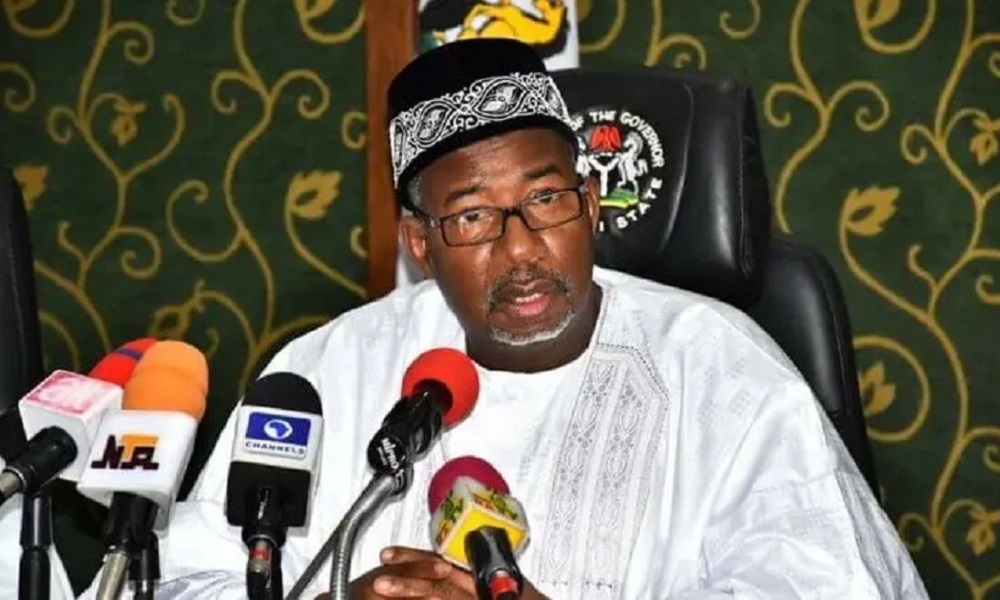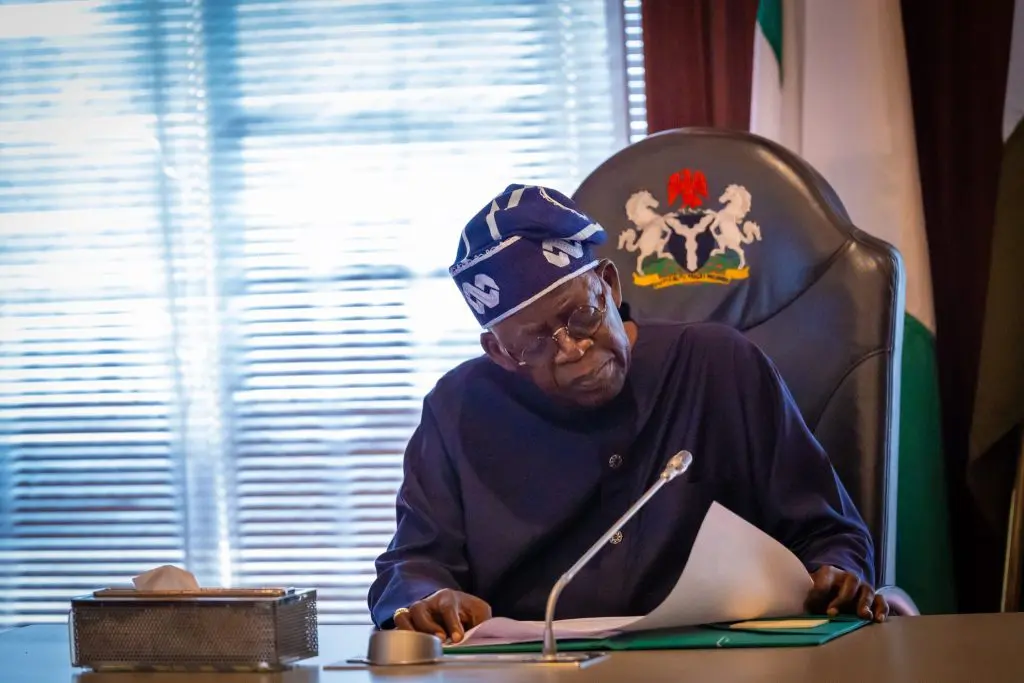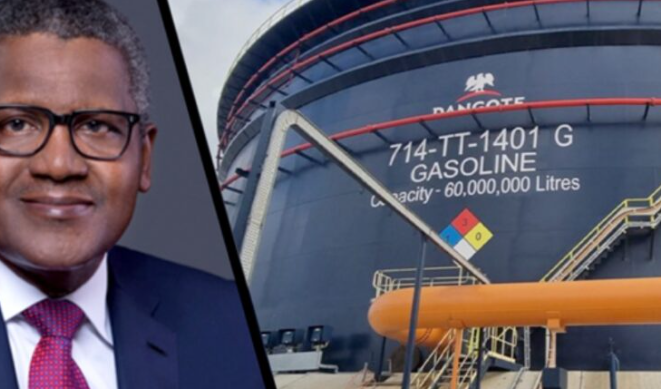News
LG autonomy: Bauchi scraps ministry for local government, swears in 3 commissioners

Bauchi State Governor, Bala Mohammed, has abolished the Ministry of Local Government and Chieftaincy Affairs in response to the Supreme Court’s judgment granting autonomy to local governments across Nigeria.
During a swearing-in ceremony for three new commissioners on Monday, Governor Mohammed announced the decision, stating, “We have dropped one of our commissioners – the former commissioner for health, (Dr. Adamu Sambo) because we have to reposition ourselves.
“First to reduce the cost of governance, shrink the establishments of the government and to implement the judgment of the Supreme Court on local government.”
He emphasized, “We will no longer have a commissioner for local government henceforth.”
The move comes after the Supreme Court’s ruling, which grants autonomy to local governments, making the ministry redundant.
The last commissioner for local government and chieftaincy affairs, late Ahmed Aliyu Jalam, passed away in a road accident four months ago, while two others resigned to contest local government elections in August.
The new commissioners sworn in include Sani Mohammed Dambam, who will head the Ministry of Health; Zainab Babatakko, Ministry of Women Affairs and Child Development; and Engr. Mohammed Abdulk will head Ministry of Commerce.
News
Tinubu Loyalist, Yemi Adenuga under fire after asking Igbo’s to leave Lagos but contesting for Elelection In Ireland

By Francesca Hangeior
President Tinubu staunch loyalist and Igbo-Must-Leave-Lagos-Election-For-Yoruba campaigner, Yemi Adenuga is under fire in Ireland, where she is vying for nomination for position in the general election.
The Irish nationals who watched her video calling for the Igbo to leave elections in Lagos for the Yoruba, have called on Nigerians to enquire if it is morally right for her to leave Irish election for the Irish?
Yemi Adenugais facing avalanche of serious criticism over nominations to contest in Irish general election.
Irish and Nigerian critics have questioned her conscience and moral right to take part in Ireland election when she was involved in hate election campaign that asked the Igbo to leave Lagos for Yoruba during the last election in February 2023.
News
Dangote not reason behind high fuel prices in Nigeria-OPEC Scribe

By Kayode Sanni-Arewa
The OPEC Secretary General called for a shift away from the narrative that pits consumers against producers, emphasizing that both groups are stakeholders in the energy ecosystem
Nigeria’s fuel price hike has sparked widespread concerns, with many pointing fingers at oil producers, particularly local operators like Dangote Refinery.
However, OPEC Secretary General, Haitham Al Ghais, has set the record straight, revealing that the real reasons behind high fuel prices lie elsewhere—primarily in taxes imposed by governments, including those of major oil-consuming nations.
In an article published on Tuesday, Al Ghais explained that crude oil and its derivatives form the backbone of global industries, powering everything from transportation to pharmaceuticals.
While many assume that rising oil prices directly benefit oil producers at the expense of consumers, the OPEC chief debunked this myth, noting that oil-producing nations are not the primary beneficiaries of retail fuel sales.
“Revenues are often generated, but they are predominantly earned by major oil-consuming countries through taxation,” Al Ghais highlighted. The Secretary General emphasized that countries within the OECD (Organisation for Economic Co-operation and Development) earn substantially more from the retail sale of petroleum products than OPEC member countries make from the sale of crude oil itself.
Between 2019 and 2023, OECD nations earned approximately $1.915 trillion more annually than OPEC nations from petroleum products. In 2023 alone, taxes accounted for around 44% of the final retail price of petroleum products in OECD countries, and in certain European countries, this figure exceeded 50%.
For Nigerian consumers, this highlights that the high cost of fuel at the pump is not merely a reflection of crude oil prices or refinery margins. Instead, a significant portion of what consumers pay is directed towards government taxes. “It is important to recognize that the price paid by consumers at the pump is determined by multiple factors, including crude oil prices, refining, transportation, and, notably, taxes,” Al Ghais pointed out.
In the UK, for instance, fuel duties are expected to generate £24.7 billion in revenue for the government in 2023-24, amounting to 2.2% of all receipts. Such figures indicate the global trend of governments, both in producing and consuming nations, leveraging petroleum products for revenue generation.
Al Ghais also underscored that while oil-producing nations do earn revenue from oil sales, a significant portion is reinvested into exploration, production, and infrastructure projects to ensure the continuous flow of supply to consumers worldwide. This reinvestment is critical for maintaining future oil supplies and stabilizing global energy markets.
In conclusion, while taxes play a crucial role in supporting government services and infrastructure, they also represent a considerable portion of the price consumers pay at the pump.
The OPEC Secretary General called for a shift away from the narrative that pits consumers against producers, emphasizing that both groups are stakeholders in the energy ecosystem.
The current fuel price crisis in Nigeria is a stark reminder of the complexity behind fuel pricing, where taxes, rather than oil producers, bear much of the responsibility for what Nigerians pay at the pump.
News
Above Average Performance AsNECO Releases 2024 June/July SSCE Results

…60.55% of Candidates Pass With Five Credits in Maths, English
By Kayode Sanni-Arewa
Good averageby Nigerian students as National Examinations Council (NECO) has released the results of the 2024 Senior Secondary Certificate Examinations (SSCE), revealing that 60.55% of candidates achieved five credits including English and Mathematics. This marks a slight decline from the 61.60% pass rate recorded in 2023.
A total of 1,376,423 students, comprising 706,950 males and 669,473 females registered for this year’s examinations, with 1,367,736 candidates (702,112 males and 665,624 females) actually sitting for the exams.
Overall, 83.90% of candidates secured five credits in any subjects, compared to 84.68% in 2023.
NECO’s Registrar and Chief Executive, Professor Dantani Wushishi, announced the results on Thursday at the NECO headquarters in Minna, highlighting that the exams took place from June 19th to August 19th, 2024, and that the results were released 55 days after the last paper was written.
Addressing issues of malpractice, Professor Wushishi stated that 40 schools across 17 states have been identified for various forms of examination malpractices, including mass cheating.
These schools have been summoned for discussions, with sanctions pending. Additionally, 21 supervisors were recommended for blacklisting due to poor supervision, negligence, and other misconduct in 12 states. Furthermore, a school in Ekiti State faces de-recognition for engaging in mass cheating in two core subjects and one science subject.
On a positive note, the total number of candidates involved in malpractices this year has decreased by 30.1% to 8,437, compared to 22,030 in 2023.
Candidates who participated in the exams can access their results on NECO’s official website (www.neco.gov.ng) using their examination registration number
-

 News5 hours ago
News5 hours agoSANUSI: Count me out of any plot to dethrone him — Ganduje cries out
-

 Sports14 hours ago
Sports14 hours agoArsenal’s Odegard to be sidelined for months over injury
-

 News23 hours ago
News23 hours ago“Dancing gives me abundant joy and peace of mind”-Gov Adeleke
-

 News23 hours ago
News23 hours agoAir Force Begins Moving Electoral Materials For Edo Guber Election
-

 News14 hours ago
News14 hours agoEdo Guber: President Tinubu has no favourite candidate – Chief of Defence Staff
-

 Politics14 hours ago
Politics14 hours agoOlumide Akpata Biography, Career, Age, Edo Labour Party Candidate Controversy
-

 News5 hours ago
News5 hours agoHardship! If Your Hubby Still Gives You 3 Square Meals, Shelter In This Economy, He’s a Responsible Man – Aisha Lawal
-

 Entertainment13 hours ago
Entertainment13 hours agoSad! Ghanaian Tik Toker Amanda dies at 24








